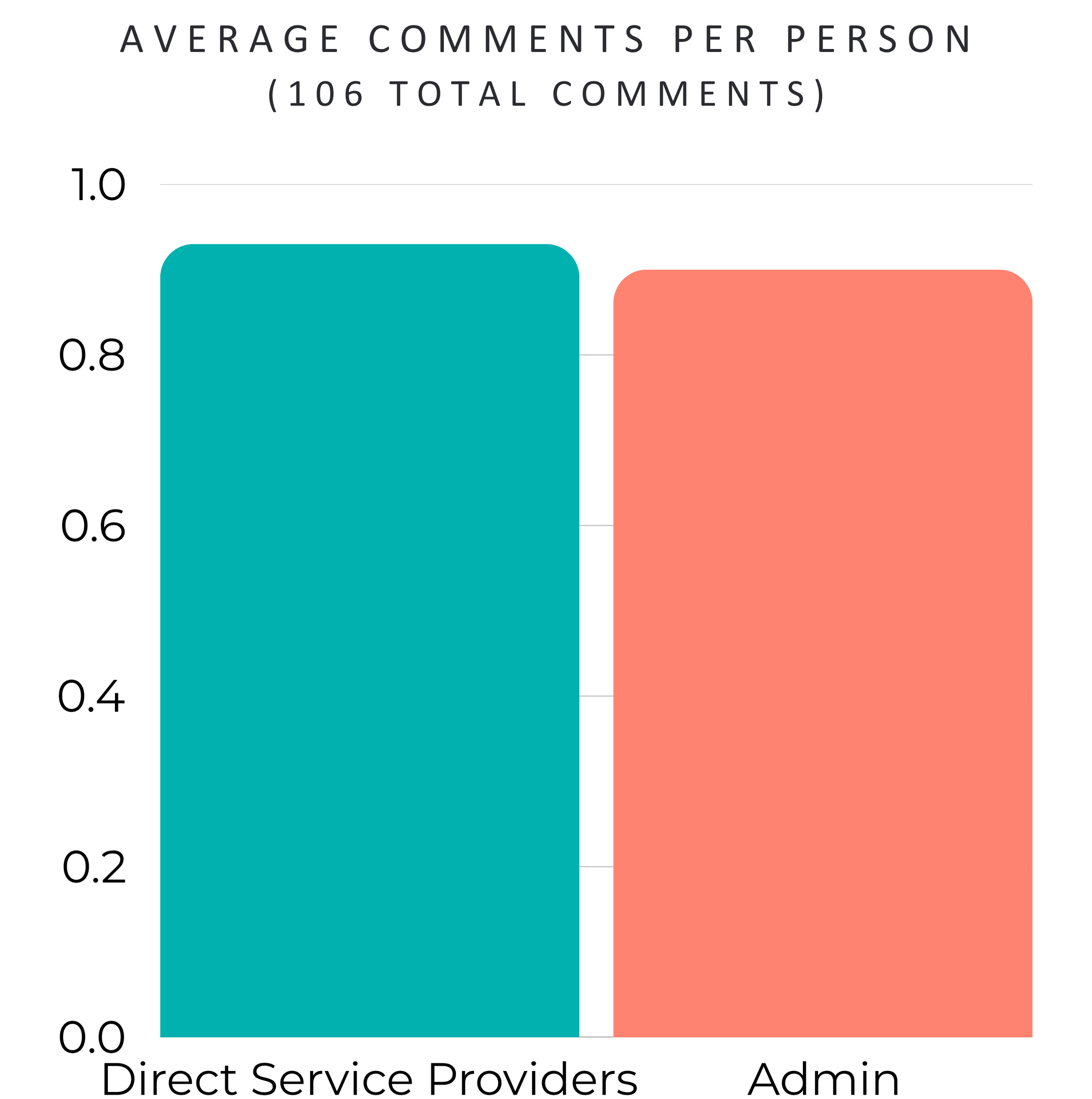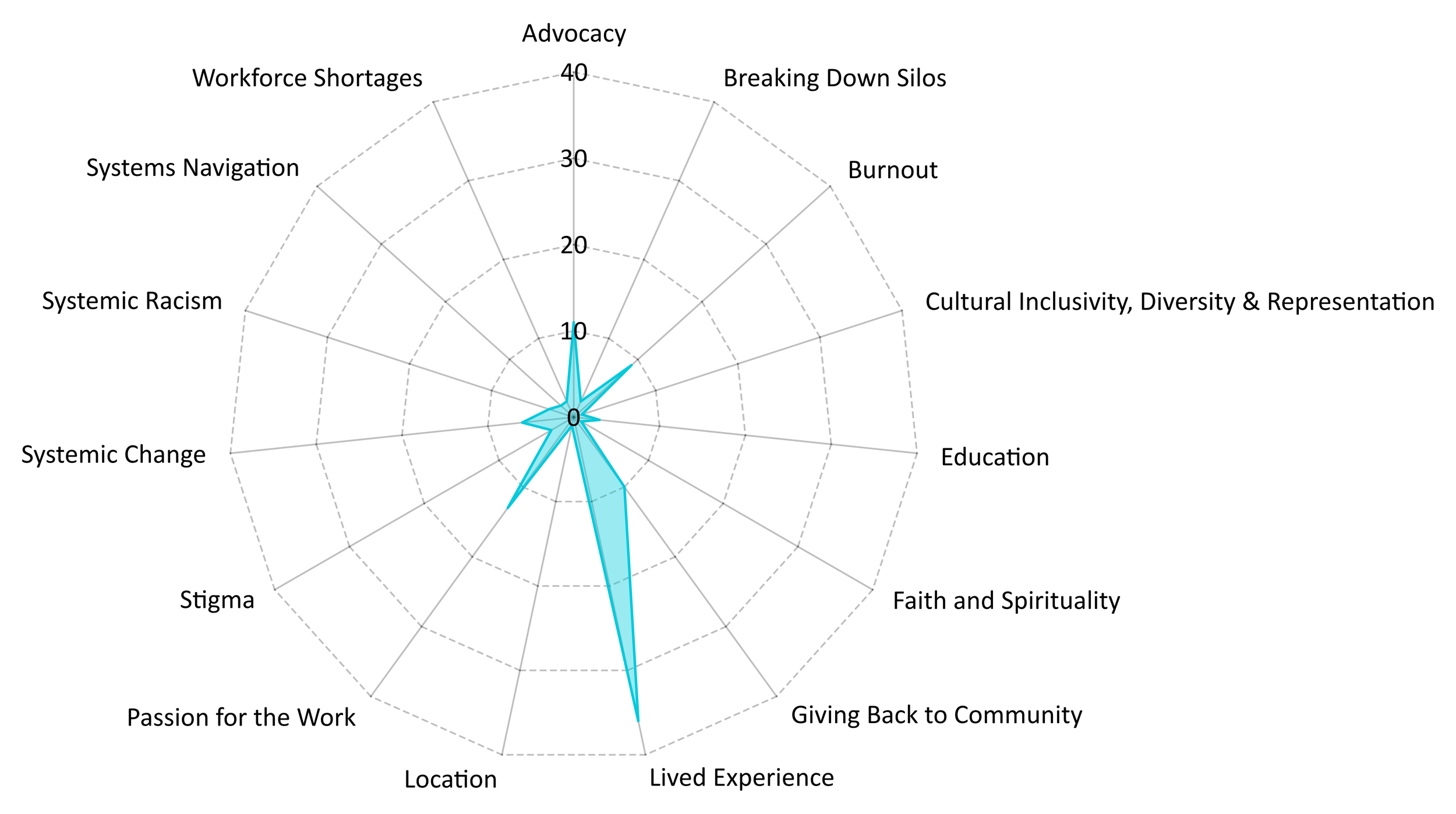
Intergenerational and Historical Trauma
Providers said they chose to work in this field because they want to help stop the cycle of trauma that can be passed down in families. Some shared that they had hard or painful experiences when they were kids, and helping children and families now helps them heal from those experiences. Working in this field is a way for them to give back and be the type of support they wish they had when they were young.
“Similarly to some of you, I grew up in a pretty traumatic childhood and had a lot of trauma. So I definitely saw the need for providing more support to young children. I always think of it in terms of being the caregiver I needed and trying to implement that in the work that I do with children and families now.” - From a direct service provider
“You see the traumatic experiences, the reason why one parent is losing custody and another parent is gaining custody. You begin to see trauma go from generation to generation. Before coming into this field of work I didn't know what generational traumas was necessarily, but I saw the harm being done to these families, and just really, truly wanted to have more of a direct impact instead of an impact through court.” - From an administrator
Call to Action
The focus groups brainstormed several actions those with authority and influence within the IECMH system can take to address Intergenerational & Historical Trauma. Below are the suggestions, organized by specific roles.
Do you have additional ideas on how to to address Intergenerational & Historical Trauma ? Click here to download a blank template and track your actions!
Connection to Other Topics
The chart below shows how Intergenerational and Historical Trauma is connected to other topics. The numbers show how often the topics were discussed together.


